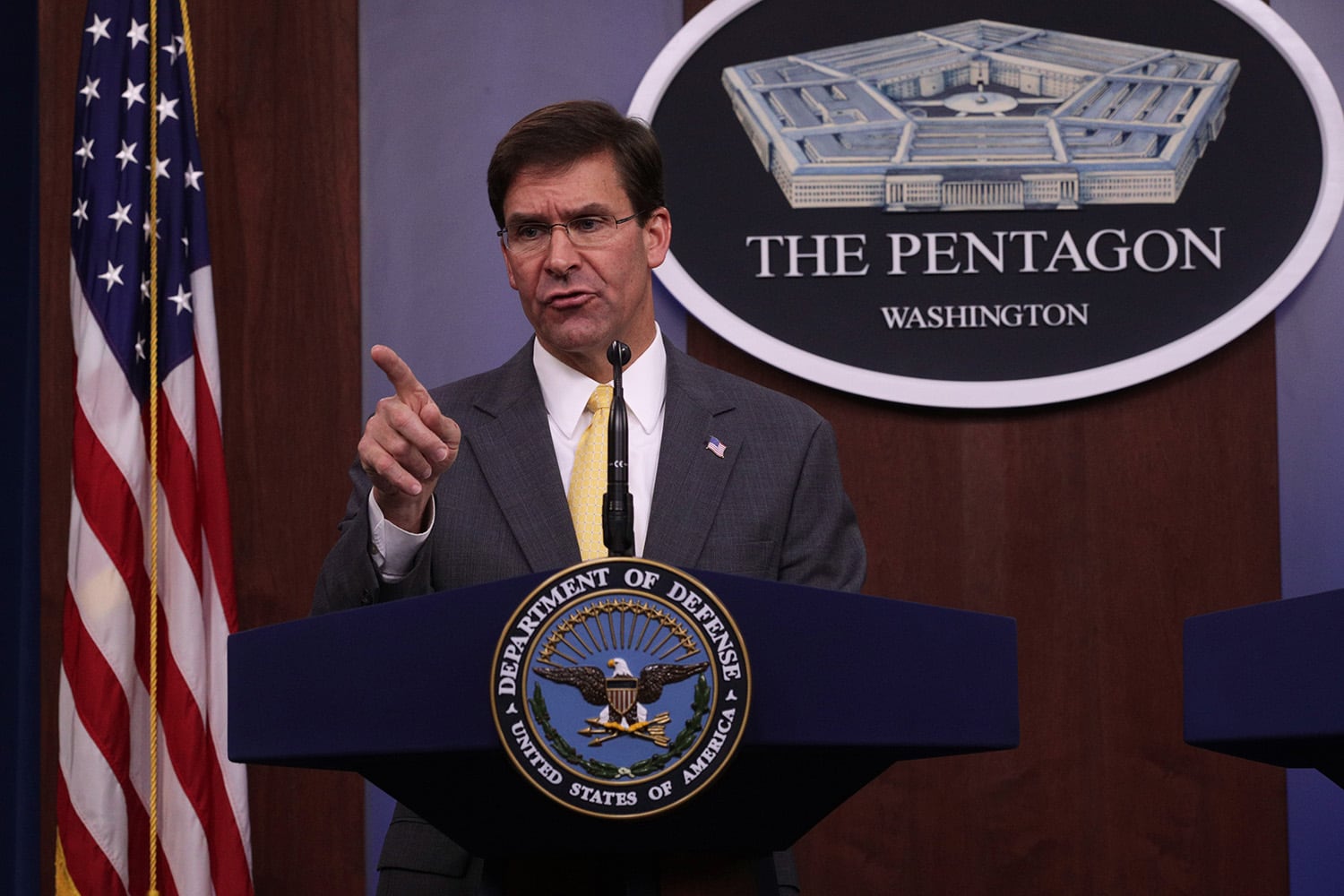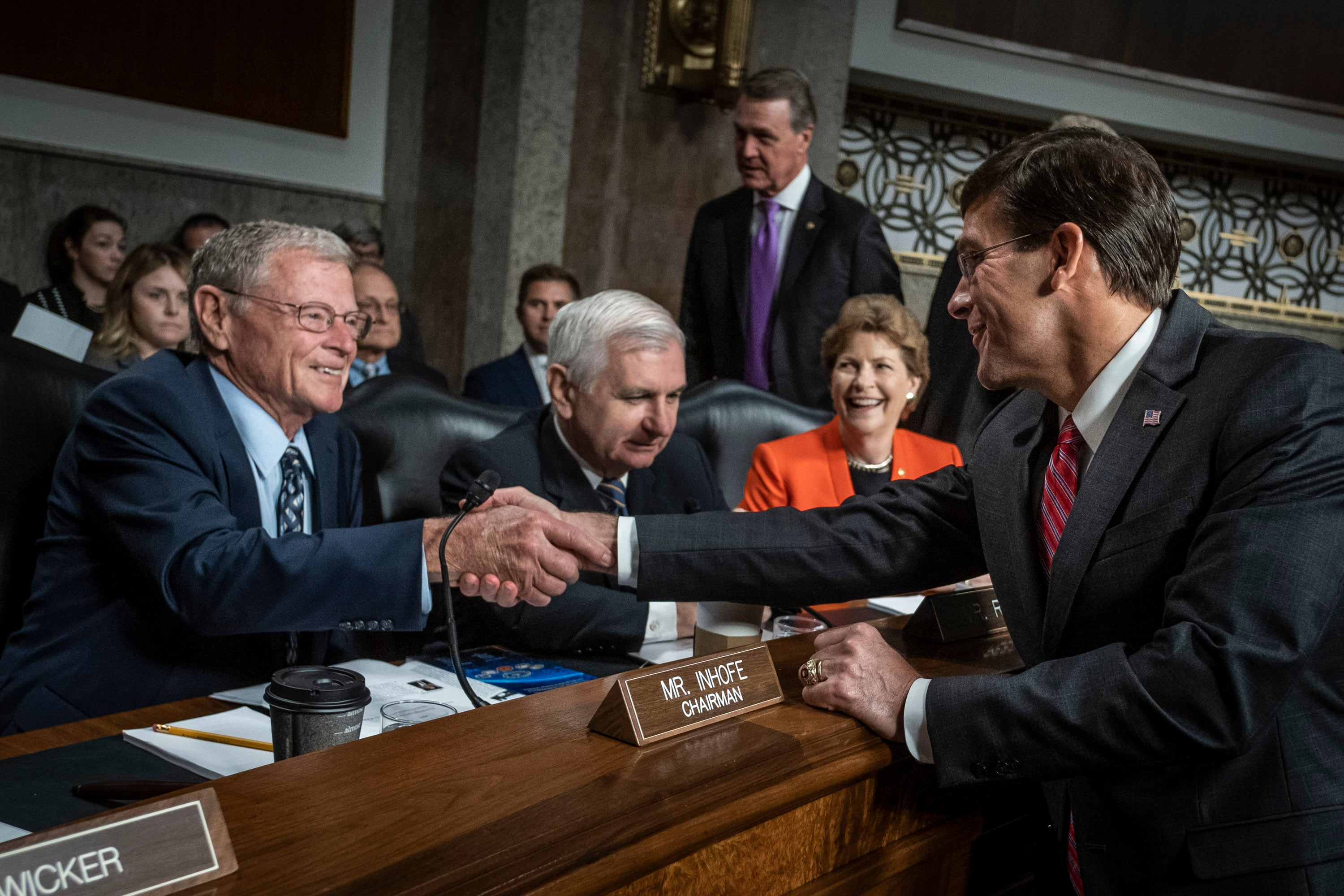For the past year, I’ve talked a lot about the National Defense Strategy and what it means for our national security policy. I’ve been clear that the commission report is my blueprint — what I am using to guide the Senate Armed Services Committee as we focus on repairing readiness and aligning the services for the new era of strategic competition with China and Russia.
But to catch up with China and Russia — and to stay competitive in the future — the Pentagon must reform, even as it rebuilds, by setting clear priorities and modernizing the way it does business. The Department of Defense has a lot of work to do — and quickly — if we’re going to meet the report’s goal of pursuing “urgent change at significant scale.”
In July, the Senate Armed Services Committee worked diligently to execute an expedited, but thorough, confirmation process for Defense Secretary Mark Esper and Deputy Secretary David Norquist. We wanted confirmed leadership in place so we can continue making progress in implementing the National Defense Strategy.
RELATED

As secretary of the Army, Esper showed a willingness to take risks and make tough decisions to refocus spending on our soldiers’ most pressing warfighting needs, leading an aggressive reevaluation of the Army’s programs of record. The results were compelling: the Army realigned $25 billion to high-priority investments like long-range artillery, network improvements, and new air and missile defense systems. Many of the programs cut to pay for this simply had not been reviewed at a high level in years — they were on autopilot until Esper decided to review the entire portfolio.
Esper should work to do the same across all the services. Finding savings department-wide and across the combatant commands may prove to be more of a challenge than it was in the Army, but it’s no less necessary.
I applaud Esper’s comprehensive, zero-based review of the “fourth estate” — the civilian management functions that make up about 16 percent of the Pentagon’s budget — with the goal of realigning priorities to support the National Defense Strategy. Norquist said, “The review will consider all ideas — no reform is too small, too bold, or too controversial to be considered.”
This is the kind of strategic creativity and senior leadership focus the Pentagon needs to succeed in its reform efforts. The department must look beyond the legacy systems of the past to meet the future needs of peer competition. And it’s even more important amid a future funding outlook missing the 3 to 5 percent real growth necessary to carry out the National Defense Strategy, as the commission recommends. These modernization efforts must free the department’s personnel to innovate and take risks in support of a joint war-fighting operational concept that will deter and, if necessary, defeat near-peer competitors in this new era of strategic competition. More than that — it must also create accountability to move new projects and technologies effectively and rapidly from research and development into the field.
RELATED

We must re-prioritize the “time, money and manpower” on activities consistent with the National Defense Strategy — spending every tax dollar wisely. I hope to see projects like the zero-based review of defense functions and realignment of the Army’s programs of record to the National Defense Strategy continue and expand. This isn’t going to happen overnight, but it’s an excellent start.
As the department continues to seek opportunities to change the way the Pentagon spends its money — both in the short term and through longer-term structural reforms of the fourth estate — congressional support will be key to moving any reforms forward. Congress must recognize that we have to take risks if we are to move at the “speed of relevance,” as former Defense Secretary Jim Mattis once said. To enable that trust, the department must be consistently forthcoming about its plans, sharing information freely with Congress and fully articulating the risk of new approaches.
The Senate Armed Services Committee will continue its oversight responsibilities to ensure these reforms truly support the National Defense Strategy and are in the best interest of national security. The committee will also keep working efficiently to confirm additional civilian positions that will be indispensable to these reform efforts.
Important work lies ahead for Esper, Norquist, the entire Department of Defense and each of the services. I commend Esper for taking bold, decisive actions to put our armed forces on stronger footing. America needs more than a strategy on paper — we need a strategy in action and a strategy implemented. His leadership will make sure we’re able to take on the difficult threats we face not just today, but tomorrow and for the foreseeable future.
U.S. Sen. Jim Inhofe is the senior senator from Oklahoma and chairman of the Senate Armed Services Committee.








